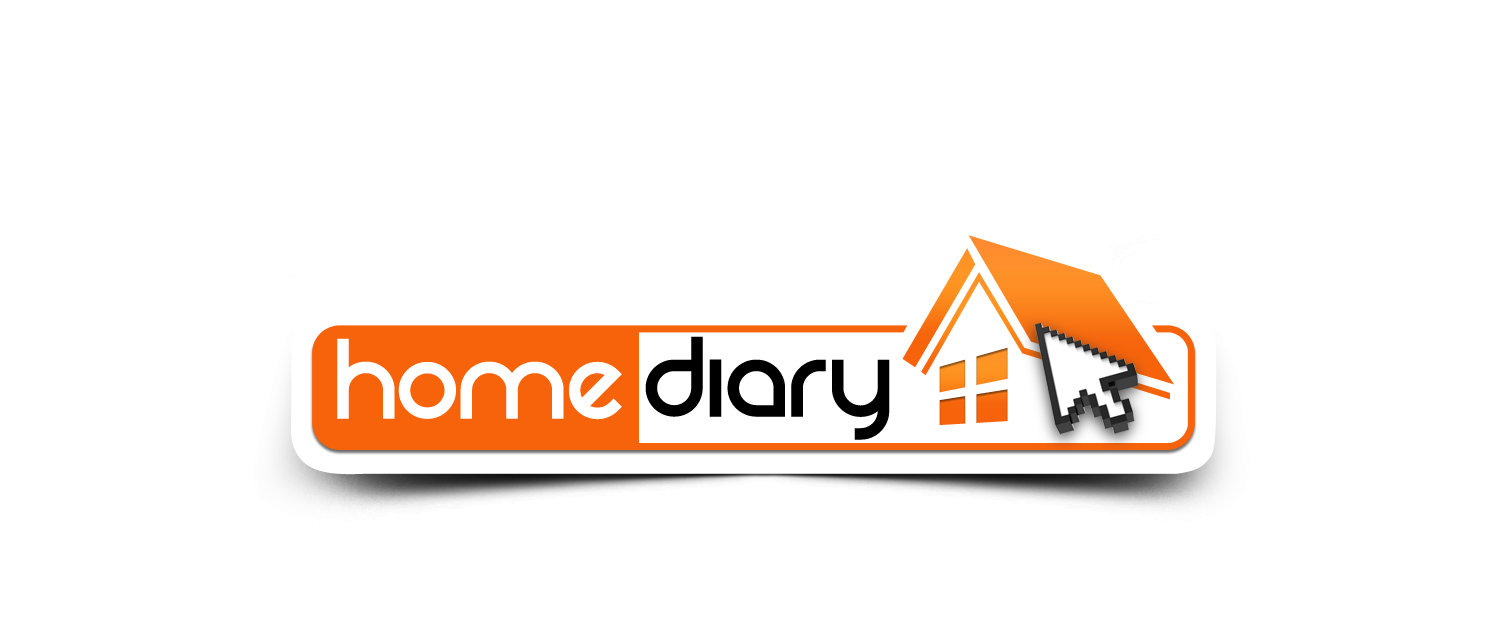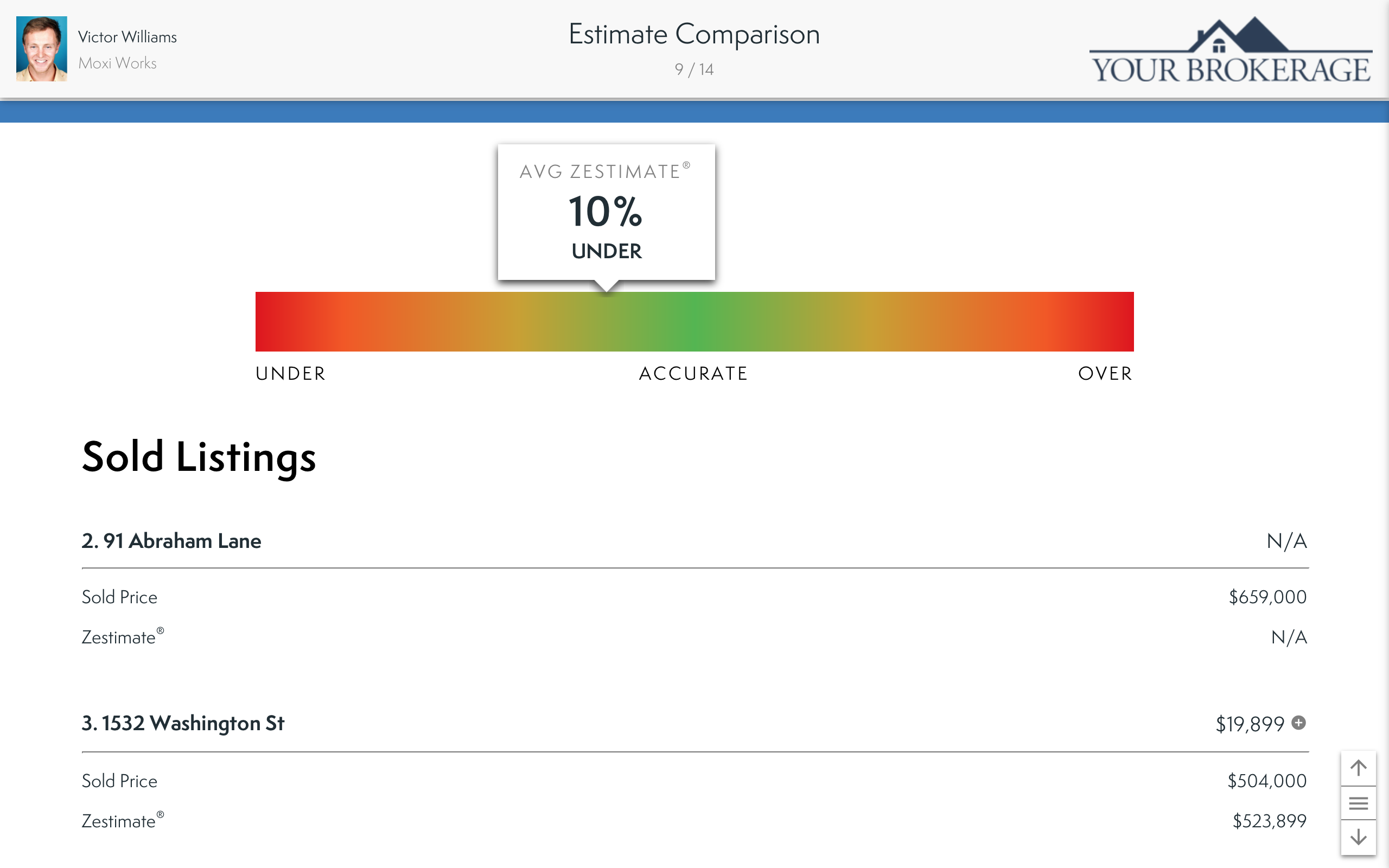Where Does a Chatbot Belong in Your Real Estate Business?

 By Maddie Jostol
By Maddie Jostol
Yes, chatbots. It’s a question every brokerage owner should be asking themselves. It’s not as intimidating as it may sound, but it is necessary. The world of real estate is changing rapidly. What are you doing to stay ahead of the game and ensure your brokerage survives?
By 2020, over 80% of businesses are expected to have some sort of chatbot automation implemented. (Business Insider, 2016)
You don’t have to be a technology company or specialize in artificial intelligence to be smart about your business tech. Look at the shifts happening in our industry and consider solutions for combatting competition and adapting with the market.
Here at Moxi Works, we’re declaring 2018 the year of the chatbot. Massive investments are being made to develop chatbots, and chatbots are gaining familiarity with consumers. As they become more widely available and used, chatbots are becoming more commonplace. When backed by powerful AI (artificial intelligence), consumers often expect, and sometimes even prefer chatbots when it comes to customer service and support.
40% of consumers do not care whether a chatbot or a real human helps them, as long as they are getting the help they need. (HubSpot, 2017)
21% of consumers see chatbots as the easiest way to contact a business. (ubisend, 2017)
Chatbots are transforming consumer interactions. The way in which consumers access personalized information and get their questions answered has changed drastically. Consumer expectations have shifted and the only way to meet and exceed those expectations is to have smart efficiency tools backing up your sales process.
Realogy, a global leader in real estate with agents in affiliated brokerages totaling almost 300,000, has recently joined the chatbot trend. In September, they announced an agreement with OJO, an AI-powered chatbot that specializes in talking real estate with consumers. OJO Labs, Inc. focuses on the union of machine and human intelligence to positively transform the home buying and selling process. The AI-powered personal assistance holds two-way conversations, providing property information and answering client questions. OJO nurtures leads until they’re ready to speak with an agent, saving both the agent and the consumer time. With the addition of OJO, Realogy brokerages will improve their customer experience, see increased productivity in agents and improve retention, and see a positive impact on their bottom line. Realogy is just one example of organizations in real estate that are adapting and embracing technology and innovation in order to stay relevant through industry changes.
In real estate, it’s common for business owners to miss significant growth opportunities because they failed to embrace technology. While you don’t need to run out and choose a chatbot provider immediately, you should begin thinking about where one might fit in your business. Partner with technology companies that are considering these trends, ensuring you have the option to adopt artificial intelligence and chatbots down the road.
Introducing: HomeDiary, Now Plugged into the Moxi Cloud


By Tiana Baur
Moxi Works is happy to announce our newest member of the Moxi Cloud open platform! FloorPlanOnline’s HomeDiary, a homeowner management platform that includes a free 3D space planner! HomeDiary enables agents to help their clients better keep track of everything going on in their homes; items, activities, and spaces.
A digital record of their home
With HomeDiary, your clients can log projects, photos, improvements, and documents for easy reference. They can upload photos and manuals, tagging items for a permanent record. They can clip images or upload snapshots of products or ideas, keeping a digital scrapbook. Finally, HomeDiary allows your clients to room plan and visualize their space in 2D and 3D.
Visualize & plan spaces in 3D
Draw a room or a whole floor plan! Design, plan, and view spaces in 2D and 3D. Plan furniture layouts, explore remodeling ideas, play with paint color palettes, and plan patio and landscaping ideas.
Store inventory & maintenance records
Find critical home information when you need it. Log paint colors and finally throw away those old cans. Find old receipts and purchase information, save and record every improvement, and easily story maintenance activities.

Clip ideas & create reminders
Save images from the web and upload or snap photos of products and ideas. Save purchase ideas, store decorating ideas, organize wish list items, and create maintenance reminders. Sort, filter, easily find!
HomeDiary helps agents stay connected to their sphere throughout the whole homeownership lifecycle. Through the Moxi integration, HomeDiary not only provides marketing tools for the listing side of the transaction, such as hands-free, automated, single-property websites and the free use of the advanced 3D floor plan engine, but it also enables agents to stay relevant with their sphere as they live in their home with the included HomeDiary sponsorship (for an unlimited number of clients). The HomeDiary system is extremely affordable—priced at less than the daily cost of a cup of coffee. Find out more on homediary.com!
Moxi Works Adds HomeDiary to Cloud Open Platform

CLICK HERE TO READ THE FULL ARTICLE Moxi Works has added FloorPlanOnline’s HomeDiary, a homeowner management platform that includes a free 3D space planner, to its Moxi Cloud open platform, the company recently announced.
Why Your Brokerage Will Die Without a Great API

 By Tiana Baur
By Tiana Baur
API stands for Application Programming Interface. It sounds complicated, but it’s actually quite simple. An API is the messenger that delivers the request you make to the provider you’re requesting it from, and then delivers the response back to you. It’s what moves your data from point A to point B. MuleSoft compares an API to a waiter or waitress at a restaurant. When you sit down, you are presented with a menu with a variety of options and variations. You place your order with the waiter who then delivers your choices to the kitchen and brings the food and drinks back to your table.
An API is what allows a brokerage platform to be truly open. And an open platform is what allows brokerages to have a choice in every tool and service they want to use. Here’s a look at the difference:
Open Platform: An open platform has an open API that allows brokerages to plug and play tools and services from multiple vendors, including multiple vendors per category (such as marketing, transaction management, advertising, gifting vendors, etc.), as they see fit.
Closed Platform: With a closed platform, brokerages are required to take the tools and services from one vendor and a very short list of partners, limiting choice and flexibility. Many will say that the brokerage has to use their website in order to get the “platform” with it. This means brokerages don’t get to keep the investment they’ve made into their current tools and services when they change them out for new ones. It means they have to start over.

The thing many brokerages don’t realize, is that data isn’t just a list of numbers. Data is what integration is literally made of. Brokerage data is the soul of the brokerage business that keeps its heart beating and its legs moving. This data is useless if it doesn’t work flawlessly together and isn’t stored in a shared environment. Without data, brokerages will cease to exist.
The Moxi Works API gives our approved partners an easy way to integrate with our open platform and helps provide a seamless solution to our brokerage customers, making them more profitable, and their agents more productive. Having all of their data in one center of truth, speaking to their unique variation of tools and services they’re plugging into their power strip, means they’ve future-proofed themselves for any and all technology changes to come. Why? Because they retain control of all their data.
The five core data components that the open platform has are:
1. Property data
2. Brokerage and agent data
3. Consumer data
4. Integration with the cloud environment with Microsoft and Google
5. An API allowing other companies to integrate
If a brokerage doesn’t use a powerful API to connect all of their tools and services, there is anarchy amongst them. A lack of integration gives agents and brokerages tool fatigue. The Moxi Cloud open platform and Moxi Works API work together to store and exchange data, and above all else, means brokerages can take the investment in their existing tools and services and integrate them using our open platform and API.
Want to know what our Moxi Works API is like? Here’s an idea of what our partners are saying about their experience with us.
Got Cloud?

 By Maddie Jostol
By Maddie Jostol
There’s a digital transformation happening. Everything is moving to the cloud. On-premises servers are being replaced, data is constantly being uploaded, exchanged, and shared, and technological advancements are being made to the cloud daily.
First of all: What exactly is “the cloud?” Mashable defines the cloud as “a network of server.” Some servers provide an online service, like Adobe Creative Cloud, and others allow you to store and access data, like Instagram or Dropbox. New to the concept? Check out their cloud for beginners guide.
A few of the major clouds you might recognize include Amazon Web Services, Google, IBM, and Salesforce. Needless to say, with these powerhouses innovating, the cloud computing market is growing rapidly and you better believe the real estate industry is moving to the cloud as well. To put things in perspective, the global cloud computing market has grown from $5.8B in 2008 to $41B in 2012 to now over $128B in 2017. What’s that have to do with real estate? Let’s just say that the amount of money pouring into real estate tech is growing, with venture capitalists investing over $1.1B in real estate technology this year alone.
Yes, the cloud is taking over real estate as well. Let that be seen as an opportunity, however. Cloud migration is gaining rapid adoption for a reason – it’s good for business, and that’s especially true in real estate. Many brokerages feel pains derived from inefficiency, low agent retention, and industry changes. The best part about the cloud is, when it comes to an open platform, it gives you the flexibility to change out technology solutions as necessary, and your data will still be safe in the cloud, ready to integrate with the new solution.
The Moxi Cloud open platform was built to bring the benefits of a cloud-based platform to real estate, delivering brokerages higher flexibility, efficiency, and profitability. It isn’t just about convenience – cloud computing is having a serious impact on companies’ bottom lines. 74% of Tech Chief Financial Officers (CFOs) say cloud computing will have the most measurable impact on their business in 2017, according to Forbes. Companies are investing in the cloud for a reason. Forbes also revealed that 60-70% of all software, services, and technology spending will be cloud-based by 2020.
The power is in the data exchange. When you integrate your systems through data exchange, you find a smoother sales process, more value delivered your agents, increased productivity, and fewer mistakes from manual data entry. Cloud migration is an opportunity for you to get your brokerage’s technology solution up to par. The competition is heating up in real estate and it’s vital that you set your brokerage up for success with the right technology – not to mention, offering technology that will attract and retain agents. So… Got cloud?
Case Study: Star Real Estate Streamlines Their Team With MoxiWorks

CLICK HERE TO READ THE FULL ARTICLE
Article Preview:
Diane van der Goes, director of Recruiting, Marketing and Corporate Strategy for Star Real Estate in Fountain Valley, Calif., grew up in the real estate business; her mother was an agent, and van der Goes earned her childhood allowance by helping her mother farm for clients, wheeling a wagon around prospective neighborhoods and dropping pumpkins door-to-door.
Wagon wheels aside, van der Goes herself entered the real estate game in 2001. With a literal lifetime of industry experience, van der Goes is no stranger to the complexities of the business; she understands how important it is to keep a team running on the same pulse.
Earlier this year, she introduced her team to Moxi Works, an open platform connecting agents with their brokerage systems in an effort to streamline communication and business strategies, as well as place a suite of best-in-class tools in one location with one log-in.
Is Amazon Going to Lower Your Leads Cost?


By Tiana Baur
“Alexa, find me the best real estate agent for our neighborhood.” Another giant might be joining the real estate industry madness with Google and Facebook, providing more referrals and lead generation to real estate agents. An Amazon placeholder page was discovered, which has since been removed, that gave people the option to “Hire a Realtor.”
The webpage was found in their Home and Business Services section, which is a newly rolled out vendor marketplace. According to Inman, “If the marketplace works for agents like it does for other professionals, then agents would pay referral fees to Amazon in exchange for new business. Amazon did not respond to a request for comment.” The general public can already hire home inspectors and interior designers via the marketplace, so adding real estate agents to the vendor list actually makes a lot of sense.

Image source: Inman News
Reviews, Reviews, More Reviews
Amazon is review rich. It’s what makes buying from them easy and painless. Like everything else with them, their Home and Business Services section also has reviews for their vendors, meaning that real estate agent reviews might have yet another place to live. Instead of agents asking for reviews, they might start receiving them unprompted.
Move Over, Zillow
If Amazon really is going to get into the lead generation game, this agent referral page might be able to create extremely strong leads, meaning more competition for Zillow, making leads more affordable across the board. In fact, according to GeekWire, “When reports of the Amazon page surfaced, Zillow’s stock price slumped from $46.15 a share to $44.54.” They also declined to comment on the surfacing of this new service.
York Baur, CEO of MoxiWorks, said, “Monopolies are never good and competition is the antidote. If anyone can give Zillow a run for their money, it’s Amazon, and knowing them they’ll be incredibly price competitive.”
Plus, let’s face it: Amazon finds ways to make everything more affordable. Even on Thanksgiving, they were able to provide turkeys at a lower price at Whole Foods (the used-to-be most unaffordable way to buy groceries) since they recently acquired the company.
The future of real estate in general could get a lot more exciting and fun with Amazon in the mix. Actually, Amazon might just take over the world – and we’re kind of excited to watch them do it. “Hey Alexa, close this transaction for me.”
How to Work Through Zestimates

By Tiana Baur
Zestimates. Clients love them, yet they are largely the bane of the real estate business as a whole. In theory, they sound amazing, but the problem is that they’re often horrifically inaccurate, leaving homeowners upset and agents anxious. In fact, the median error rate of Zestimates is 5 percent. That may sound menial as a percentage, but when computed with the median home sales prices, it can be tens of thousands of dollars lost to the bottom line, and that’s if you’re lucky. According to the Washington Post, “Zestimates are within 5 percent of the sale price 53.9 percent of the time, within 10 percent 75.6 percent of the time and within 20 percent 89.7 percent of the time, Zillow claims.” So, unless luck is on your side, that 5 percent is likely to grow.
Wouldn’t it be nice to showcase the Zestimate inaccuracy to your clients?
Our CMA presentation tool, Moxi Present, encapsulates the relevant information about a house and enables you, a professional agent, to consult and advise clients with accurate information, and information that can give true context to a Zestimate. It does this by showcasing what the Zestimate was on all selected comparable properties to your current listing versus what they actually sold for. Here is an example of Moxi Present at work.
You are not an algorithm, don’t get treated like one.
Have you ever been sick or not feeling well and tried to look up what your symptoms mean online? If you have, chances are you panicked when the results came up because it eluded to you probably having a horrible flesh-eating disease (even though you just have a flu that’s going around). My point is, when you’re talking about your health, you go see a doctor, a professional doctor. When you’re trying to sell your home, you might take a peek online beforehand, but in the end, you want and need a professional’s advice.
Remember, Zestimates are a computer algorithm. You, the real estate agent, have access to a wealth of data when using modern tools (like Moxi Present) that go well beyond what some computer algorithm is using. You also have access to things that no algorithm can. Let that sink in for a moment. Zestimates can’t see the details of the home’s interior or know the character and culture of a specific neighborhood. As their agent, you are their trusted advisor, the professional.
Find out more about this industry-leading CMA and presentation tool here and why agent’s that used it in 2016 did 43% more business than those that didn’t.
Will Redfin’s Giant Team Take Your Market Share?


By Tiana Baur
Redfin’s stock dropped 5.45 percent last week when Compass announced their plan of world domination. Although, it was primarily due to their poor Q3 earnings release, falling short of analyst estimates, and we’ll go ahead and mention the fact they currently only serve 0.71 percent of the U.S. housing market… BUT they’re still Redfin. They’re still a shark in a sea of minnows, constantly posing a threat.
In real estate, agent teams are becoming kind of a big deal. In fact, there are now 35,000 to 50,000 agent teams across the U.S., with the majority of them having two to nine team members belonging to them. These numbers are only growing, with 37 percent of teams formed one to three years ago and 26 percent of teams formed one year ago.
Working in teams is way more productive and provides additional benefits, such as:
- Extra lead generation
- Process and vision to building a bigger brand and operations that can scale
- Mentoring new agents in the market
- Collaboration and communication through the different roles
- Combining different talents and skills
- A more diversified client demography and audience
What does this have to do with Redfin? Well, they’re basically a GIANT agent team. Instead of having a bunch of independent contractors on their hands, they have agents on staff and have a website that generates lots of leads for their agents. They built a website with tons of cool, shiny technology and features to attract lots of eyeballs and leads. Sometimes, they even give leads to agents at other brokerages, like a team that generates leads and distributes them to their team members.
To quote a popular interview done with an industry influencer this past summer, “Redfin is not a brokerage; it is an agent team. Let that sink in for a moment. Redfin is not in the recruiting and retention business like 99.99% of brokerages are today. They could care less about recruiting the superstar elite agents. Redfin is in the business of helping people buy and sell homes — just like an agent team. They have employee agents who must use Redfin’s systems, must follow Redfin’s procedures, and the people they work with are not their clients, but Redfin’s clients — just like an agent team. And just like an agent team must have a superstar lead-generation lead agent, Redfin has one… in its website and mobile app.”
If you didn’t think of Redfin this way before, now might be a good time to do so. Although they had less than fruitful earnings this quarter, according to GeekWire, they have pushed out a few new products and have a new speedy offer-writing software they’re going to start rolling out in select cities called Redfin Fast Offers. So, who knows what will happen. But a powerful giant like Redfin isn’t going to give up without a fight and your market share is hardly safe in an environment where Compass, Redfin, and others are constantly brewing up their next attack.
MoxiWorks Adds CallAction to Cloud Open Platform

CLICK HERE TO READ THE FULL ARTICLE Moxi Works has added CallAction, an automated lead marketing service, to its Moxi Cloud open platform, the company recently announced.
CallAction is the only marketing automation service currently on the market that can be used with offline or online lead generation efforts to respond to inquiries from phone calls, emails and texts. Their powerful integrations bridge the gap between agents’ top of the funnel lead generation and their existing lead nurturing CRM systems for increased productivity.


 Facebook
Facebook
 X
X
 Pinterest
Pinterest
 Copy Link
Copy Link

